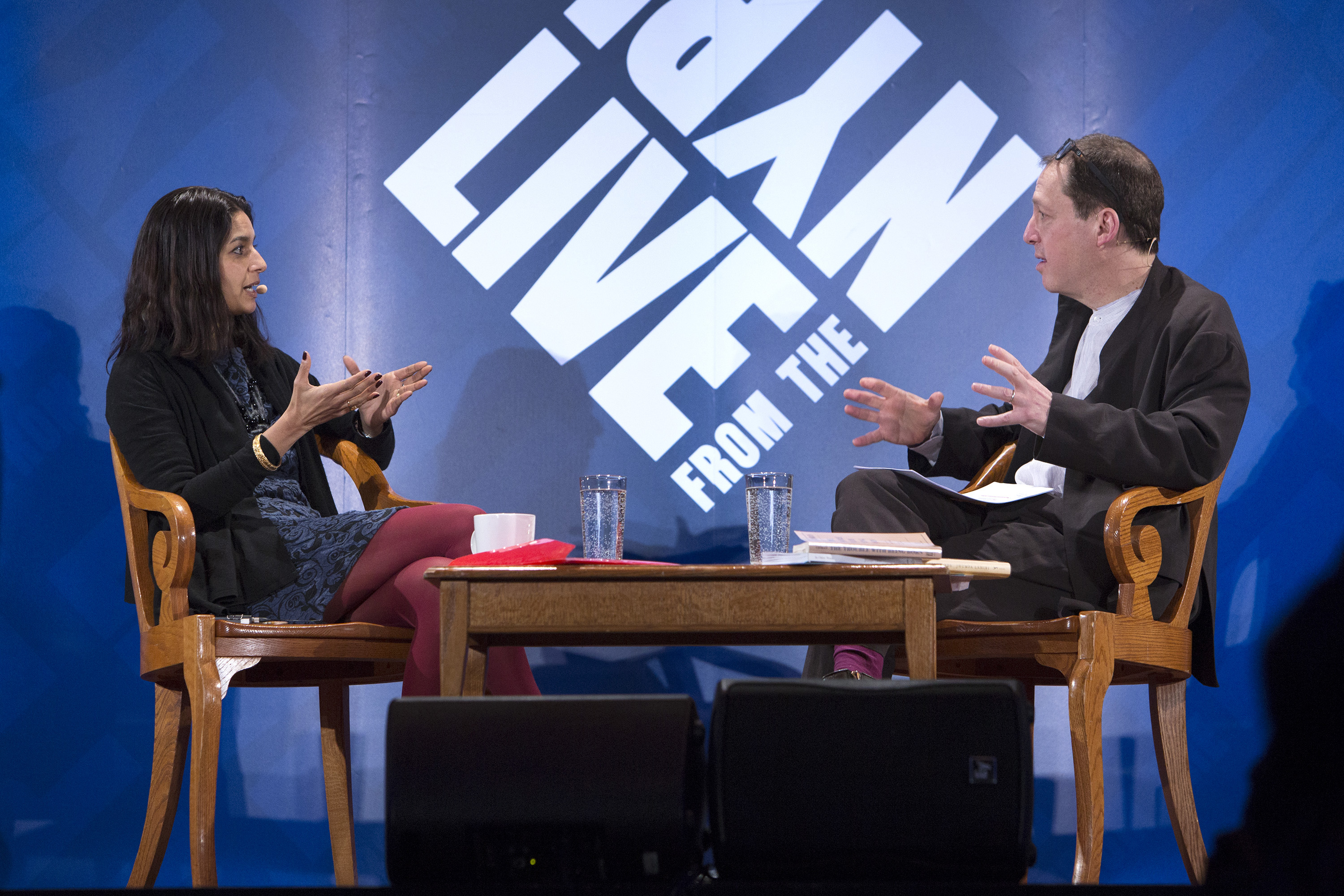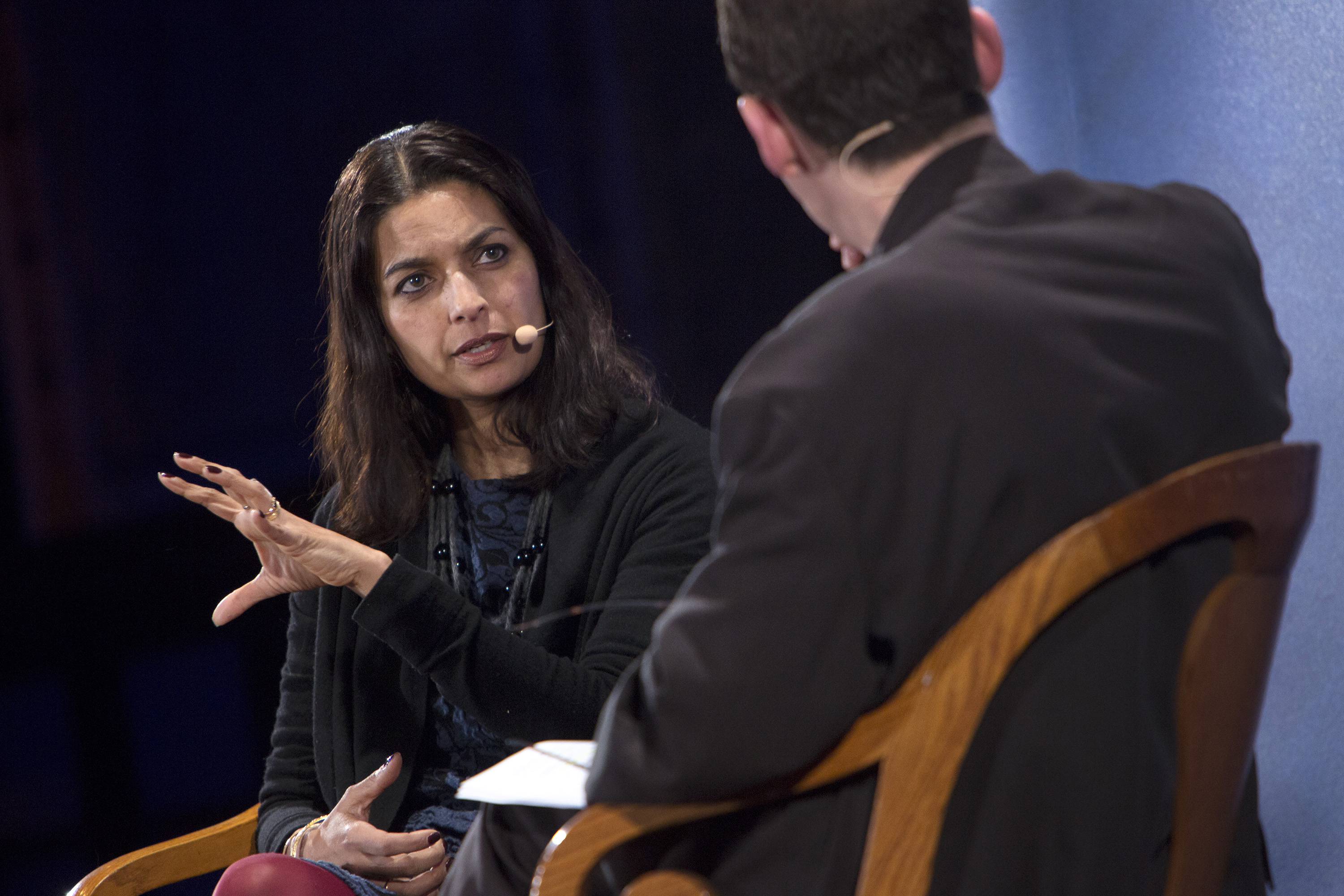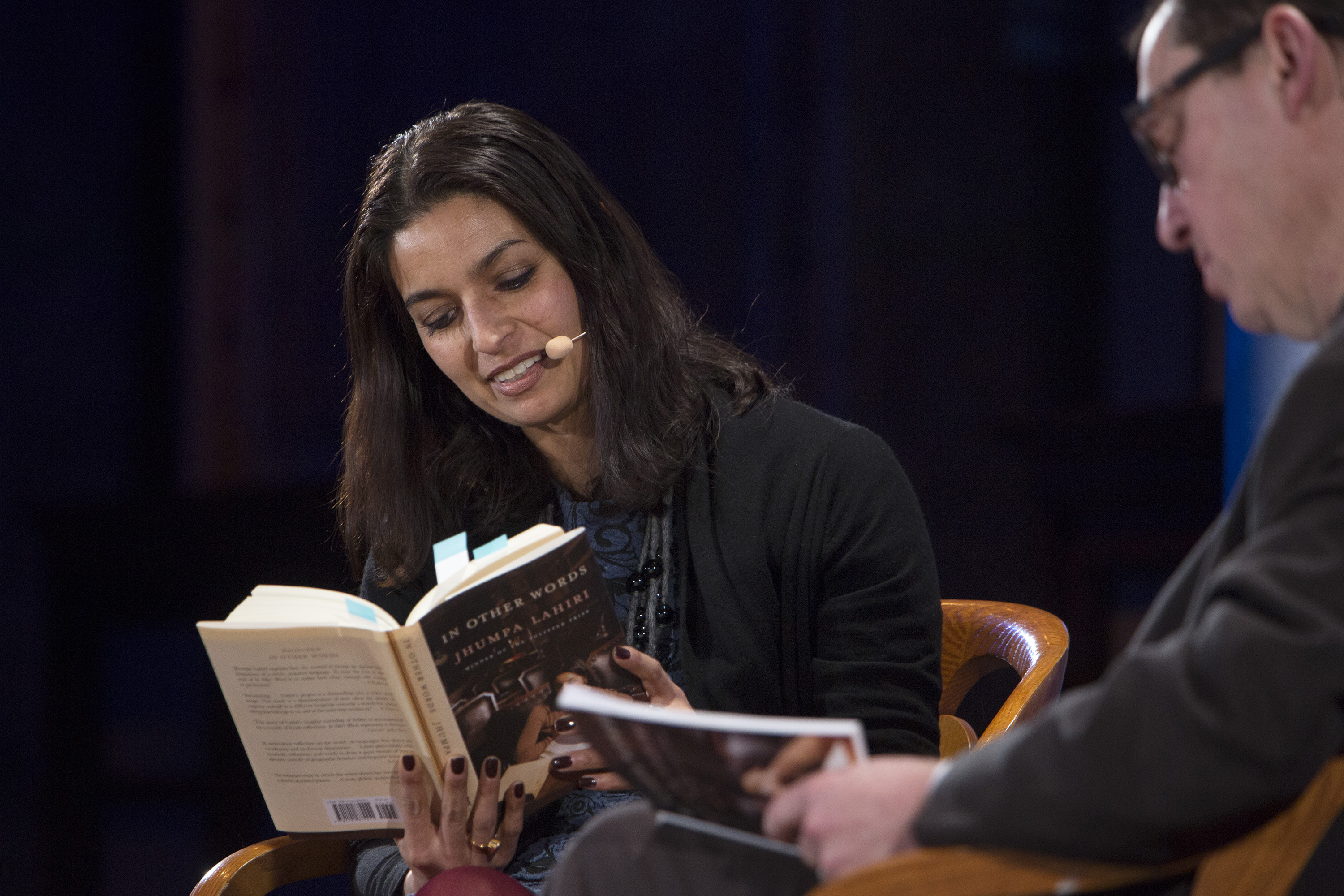3,072 people reached on FB Lassi with Lavina page
Sandhya Jain Patel and 8 others like it on FB

Jhumpa Lahiri and Italian – An Affair of the Heart
Photos by Jori Klein/The New York Public Library

[dropcap]L[/dropcap]anguage is so vital to our very souls, to our very essence, to how and what we think, to who we are.
Without language, there is emptiness, a void. Each of us has a unique memory of our earliest words, the numbers, nursery rhymes. In invoking those we get a word picture of our childhood, our deep joys, our irrational fears. The language that we speak gradually becomes a layering, a part of us, an extension of everything we do.
Some of us may speak two languages – English and the mother tongue we learned first, be it Hindi or Bengali. One of them may be a stronger language for us, and we learn to juggle the two, thinking in two languages and sometimes juxtaposing the two. Treating them like long-known friends, like comfortable old shoes, we take them for granted, always trailing us like a shadow.
Yet what happens when you decide to pick up a new language in your forties?

[dropcap]M[/dropcap]eet Jhumpa Lahiri, winner of the Pulitzer Prize, and one of the finest writers in English. She is the author of four works of fiction: Interpreter of Maladies, The Namesake, Unaccustomed Earth, and The Lowland. Besides the Pulitzer Prize, she has received the PEN/Hemingway Award, the Frank O’Connor International Short Story Award, the Premio Gregor von Rezzori and the DSC Prize for South Asian Literature. She has also received a 2014 National Humanities Medal, awarded by President Barack Obama
Her love affair with Italian has made her do something unthinkable to many of us: not only has she abandoned English and Bengali completely – she has embraced Italian as her only language. She did this by leaving New York for Rome, and locking her tongue to English and Bengali. She stopped reading or writing in English completely and started like a child, learning the building blocks of the Italian language. Her passion for Italian, her yearning to gain insights into its world took her on what she calls “a trial by fire, a sort of baptism.”

[dropcap]T[/dropcap]he result is ‘In Other Words’ (Knopf) her first autobiographical work in Italian – which has now been translated into English by Ann Goldstein. This book has already won the Premio Internazionale Viareggio-Versilia award.
In these short essays in the book you get a glimpse of Lahiri’s baptism, the first stirrings of love. She writes: “What I hear, in the shops, in the restaurants, arouses an instantaneous, intense, paradoxical reaction. It’s as if Italian were already inside me and, at the same time, completely external. It doesn’t seem like a foreign language, although I know it is. It seems strangely familiar. I recognize something, in spite of the fact that I understand nothing.”
Jhumpa Lahiri: In Her Own Words
[dropcap]S[/dropcap]he goes on to explain, “It seems like a language with which I have to have a relationship. It’s like a person met one day by chance, with whom I immediately feel a connection, of whom I feel fond. As If I had known if for years, even though there is still everything to discover. I would be unsatisfied, incomplete, if I didn’t learn it. I realize that there is a space inside me to welcome it.”
She writes this in Italian in her slim new book and I read it in English on the accompanying page.
Recently Lahiri was at the New York Public Library where she spoke with Paul Holdengräber on the many nuances of writing in Italian. Here I share with you her thought-provoking conversation and the insights she shared about language, exile and immigration.

[dropcap]T[/dropcap]his August I am planning a trip to Tuscany, Italy – Lahiri’s ‘In Other Words’ will be the book I read on board the plane and in the sunshine of Tuscany. It is in the dual language format, so the music of the Italian words, the rhythm of the phrasing will create an atmospheric echo as I wander Italian cities.
I bow down to Jhumpa Lahiri, the intrepid writer and language lover, to her courage in pursuing a love with persistence, and overcoming the challenges. If I manage to learn even a few words of Italian on my trip I will be lucky – but Lahiri’s words in lyrical Italian – translated into English – will enrich me, make me think – as her work always does.
“When you’re in love, you want to live forever,” she writes. “You want the emotion, the excitement you feel to last. Reading in Italian arouses a similar longing in me. I don’t want to die, because my death would mean the end of my discovery of the language.Because every day there will be a new word to learn. Thus true love can represent eternity.”
Here’s the audio file to listen to, while driving.
Related Articles:
Jhumpa Lahiri – Living on Unaccustomed Earth
The Next Rushdie?
